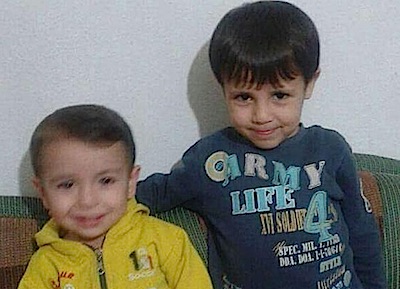
Thousands of Irish families have pledged to provide shelter to refugees following a dramatic recognition of the plight of those fleeing conflict zones in the Middle East and north Africa.
The Irish Advocacy organisation, Uplift, has received over 12,000 offers since launching the campaign. Over 35,000 people have also signed an online petition calling on Taoiseach Enda Kenny “to commit to allowing thousands not hundreds of refugees seek refuge in Ireland”.
There has also been pressure on the European Union to intervene to prevent any more refugees losing their lives in the journey to Europe. Thousands have already died this summer making hazardous sea crossings in an effort to reach Europe. Most of those who perished came from Africa, but it was the image of the lifeless body on a Turkish beach of a Syrian Kurdish toddler who perished along with his brother on a sea crossing to Greece which sparked an unprecedented wave of sympathy for the refugees.
A number of solidarity vigils have been organised, including one at the Dublin famine memorial.
Under pressure to respond to the humanitarian crisis, Justice Minister Frances Fitzgerald said the 26 Counties could take in over 1,800 refugees. She added that the surge in goodwill must be “balanced” with what she said is “practical and sustainable”, citing the number of asylum seekers in Ireland who have never had long-term accommodation.
Asylum seekers in the South must abide by the State’s notorious ‘direct provision’ system, where basic food and shelter is provided at hostels which operate in the manner of open prisons.
Ireland has already agreed to take 600 refugees. A hotel in Monasterevin, County Kildare has been converted to accommodate them as they begin arriving in Ireland.
Minister for the Environment Alan Kelly said he expected the State would end up accepting thousands of refugees. “Ireland should lead the world on this issue,” he declared.
“Anyone whose conscience had yet to acknowledge how grave this crisis is will have come to a realisation overnight with the heart-wrenching image of Aylan Kurdi lifeless on the sands,” he said.
The position represents a major u-turn for the coalition government, which previously warned about a spike in “migrants” coming to Ireland via Britain. Minister Fitzgerald had warned against improvements in the direct provision system which could make Ireland a “destination country”.
But the actions of the current wave of refugees, some of whom are today marching across Hungary, brought memories of Ireland’s waves of poverty-induced emigration in coffin ships to America. It also recalled the ‘trail of tears’, a forced march through the valleys of Connemara during Ireland’s Great Hunger.
An annual Famine Walk between Louisburgh and Doolough commemorates this event, and a monument in Doolough valley has an inscription from Mahatma Gandhi: “How can men feel themselves honoured by the humiliation of their fellow beings?”
Republican groups have expressed support for the refugees and joined in a rapidly growing campaign to offer then a safe home.
Sinn Fein’s Gerry Adams has called for the Dublin government’s response needs to be “imaginative and generous” to a crisis which has “a deep historical resonance for the Irish people”.
“The government needs to begin putting in place adequate systems and infrastructure to accommodate those seeking refuge,” he said.
“An increase in the numbers of refugees being allowed into Ireland is welcome but the government response must reflect the widespread feeling among Irish citizens that more needs be done to relieve the suffering being witnessed on our TV screens.”
President Michael D Higgins said Ireland should be prepared to double the number of migrants and refugees envisaged by EU ministers.
“We have to decide at certain times in our life to do what is right and what is right is to come to the assistance of those who, like our own ancestors, were being lost in the sea of the Atlantic three generations ago,” President Higgins said.
![[Irish Republican News]](https://republican-news.org/graphics/title_gifs/rn.gif)
![[Irish Republican News]](https://republican-news.org/graphics/title_gifs/harp.gif)

